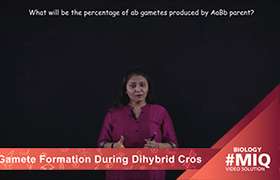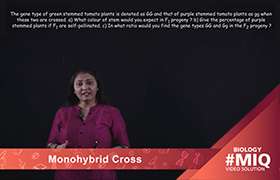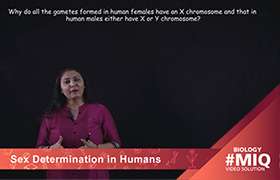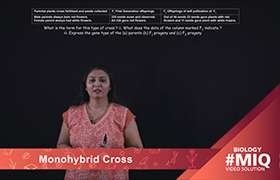CBSE Class 10 Answered
i) Natural selection - Natural selection is a natural process that results in the survival and reproductive success of individuals or groups best adjusted to their environment and that leads to the perpetuation of genetic qualities best suited to that particular environment.
It is a key mechanism of evolution. Natural selection acts on the phenotype, or the observable characteristics of an organism, but the genetic (heritable) basis of any phenotype which gives a reproductive advantage will become more common in a population. Over time, this process can result in adaptations that specialize organisms for particular ecological niches and may eventually result in the emergence of new species.
ii) Variation - Natural variation occurs among the individuals of any population of organisms. Many of these differences do not affect survival (such as differences in eye color in humans), but some differences may improve the chances of survival of a particular individual. A rabbit that runs faster than others may be more likely to escape from predators. Variations are the raw materials on which nature acts.
iii) Geographical isolation - This refers to the physical separation of members of a population. When part of a population of the same species becomes geographically isolated from the remainder, it may over time evolve characteristics different from the parent population and change. Then at a later stage, if the geographical barriers are removed, members of the two populations will be unable to successfully mate with each other. At this point, a new species has emerged. Geographical isolation is thus a key factor in speciation.
iv) Genetic drift - Genetic drift refers to the random fluctuations in the frequency of the appearance of a gene in a small isolated population, presumably owing to chance rather than natural selection.
Genetic drift is a random statistical effect and can occur only in small, isolated populations in which the gene pool is small enough that chance events can change its makeup substantially. The individual changes are most often small or gradual and genetic drift is most often slow. But in the long run it can constitute a large part of the changes in a gene pool. Genetic drift also often cause alleles to disappear completely. The changes due to genetic drift are not driven by environmental or adaptive pressures, and may be beneficial, neutral, or detrimental to reproductive success.
Although genetic drift is a mechanism of evolution, it doesn’t work to produce adaptations.
Mutations are also a contributary factor of speciation.













